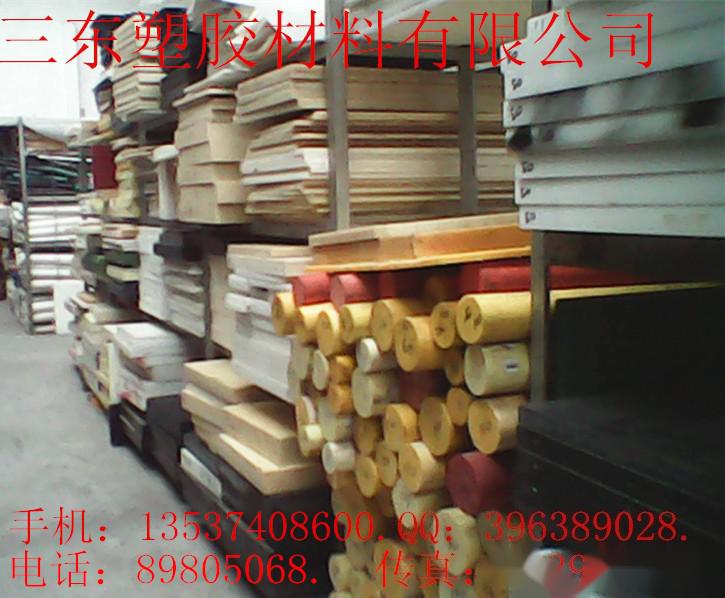Polysulfide Ether (English name: Polyphenylene Sulfide)
Abbreviated as PPS 
Main Properties of PPS
◆[Excellent Heat Resistance] Its melting point exceeds 280℃, thermal deformation temperature exceeds 260℃, and long-term service temperature is between 220-240℃. It degrades at 700℃ in air and still retains 40% of its weight at 1000℃ in inert gas. Both short-term heat resistance and long-term thermal stability during continuous use are superior to all current engineering plastics. Specially modified varieties can achieve a thermal deformation temperature of over 350℃.
◆[Self-Extinguishing] The flame retardancy of polysulfide ether can reach UL94-0 level, with an oxygen index (LOI) > 57%. The chemical structure of polysulfide ether provides good flame-resistance properties without the need for added flame retardants.
◆[Good Mechanical Properties] It has strong rigidity, high surface hardness, Rockwell hardness > 100HR, tensile strength > 170MPa, flexural strength > 220MPa, notched impact strength > 16MPa, and flexural modulus > 3.5×104, along with excellent creep resistance and fatigue resistance.
◆[Excellent Chemical Resistance] Currently, no solvent has been found that can dissolve polysulfide ether at temperatures below 200℃, and it has very strong resistance to inorganic acids, bases, and salts.
◆[Good Dimensional Stability] The molding shrinkage rate is very low, less than 0.0025%, and the absorption rate is less than 0.05%, with a small linear thermal expansion coefficient. It exhibits good dimensional stability even under high temperature and high humidity conditions. Therefore, it has a wide range of applications in machinery, chemical industry, instruments, aerospace, and shipbuilding.
◆[Good Electrical Properties] Polysulfide ether maintains excellent electrical properties under high temperature, high humidity, and high frequency conditions, with a volume resistivity of 1×1016Ω.cm, surface resistivity of 1×1015Ω, and dielectric strength > 18KV/mm.
◆[Radiation Resistance] Radiation resistance reaches Gy1×108, making it a new material unmatched by other engineering plastics. It is an ideal material for electronics, electrical, mechanical, instruments, aerospace, military applications, particularly for radiation resistance.
◆[Good Processing Properties] PPS resin has low melt viscosity and good flowability, allowing for easy wetting and contact with glass fibers, thus facilitating filling. The glass fiber or inorganic filler reinforced injection grade pellets made from it exhibit high resistance to stretching, impact, bending, and ductility. It can be uniformly molded above its melting point.
◆[Good Adhesion with Metals and Non-Metals] PPS has a very high bonding strength with materials such as glass, aluminum, titanium, and stainless steel, achieving a level 1 adhesion. It adheres well to glass, making it suitable for lining chemical equipment.
Main Application Areas of PPS
Electronics and Electrical: Packaging for microelectronic components, connectors, terminals, sockets, coil frames, trimmer capacitors, fuse bases.
Mechanical Instruments: Pump housings, impellers, bearings, gears, pulleys, universal joints, sealing gaskets, flanges, counters, level gauges, flow meter components.
Automotive: Temperature sensors, vaporizers, evaporators, vapor pumps, seat bases, water tank chambers.
Home Appliances: Electric fans, microwave oven brackets, dryers, coffee makers, rice cookers, hair dryers, curling irons, air conditioning compressors.
Military: Used in making fighter jets, vertical stabilizers, combustion chambers, connectors for aerospace and aircraft, coil frames, dashboard components, especially major components of stealth fighters and bombers. Parts of nuclear submarines that resist nuclear radiation, supports, helmets, military tents, utensils, astronaut supplies, corrosion-resistant and wear-resistant components for military ships and submarines, new combat vehicles developed by the USA (in production stage) and plastic tanks developed by the UK (in experimental stage), etc.
Fibers and Films: PPS fibers blended with other synthetic fibers can be used to make high-performance industrial filter cloth and radiation-resistant aerospace fabrics. PPS films are excellent insulation materials reaching F grade, suitable for making capacitors, impedance electronic components, flat coil frames, wire coatings, covers, vaporizer membranes, thermosensitive printing materials, flexible disks, and photosensitive strips for electronic photography.













